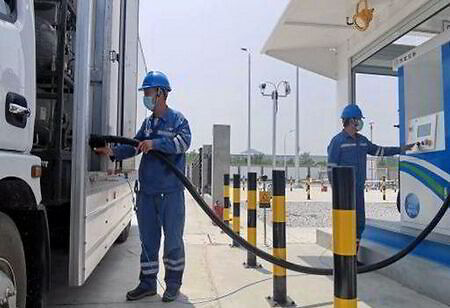
How Beijing Turned its Challenges into Opportunity to Win Green Energy Goals


Population can be the destroyer, as well as, the restorer of its environment and Beijing has been a great example of demonstrating that with its population and energy consumption. Over the last two decades, Beijing has proved that a megacity with a quickly increasing GDP and significant increases in vehicle numbers, population, and energy consumption can effectively reduce air pollution.
Beijing's yearly average PM2.5 concentration has decreased by roughly 6 mcg per cu m per year during the last decade. According to Li Xiang, director of the bureau's atmospheric environment department, that progress has been termed the Beijing miracle by the United Nations Environment Programme. Green electricity is also projected to be transmitted from various places surrounding Beijing. In recent years, this has meant the installation of new wind and solar projects in the surrounding area, with the goal of providing clean energy not only for the games, but for the entire city of Beijing.
The capital's efforts to reduce pollution and carbon emissions have also gained international attention. For example, at the C40 World Mayors Summit in Buenos Aires, Argentina, in October, the Phasing out Coal in Beijing's Heating System project was named one of the world's 10 best climate projects.
Government’s Strong Push Towards Clean Air
In recent years, the Chinese government has made some headway in combating environmental degradation. Beijing, for example, has claimed a 63 percent reduction in air pollution (particulate matter 2.5) between 2013 and 2021.
For example, due to high levels of pollution, the authorities have closed down countless companies and businesses in Hebei province, which totally surrounds the Beijing and Tianjin municipalities, in a one-size-fits-all approach over the previous decade.
Central government plans to transition coal miners into new occupations and training opportunities, as well as providing subsidies during the transition, have yet to be thoroughly evaluated for success in affected communities around the country. Long before the 2022 Beijing Winter Olympics began in February, China promised to power them entirely with renewable energy.
Olympic Games
The legacy of the 2022 Beijing Winter Olympic Games also means that the capital's energy use will be greener.
All of the energy needs of the event's venues were met by a grid that transports solar and wind electricity from Zhangbei, Hebei province. The system, which can meet around 10 percent of Beijing's electrical needs, will be utilized to help power the city.
Technical Monitoring Systems
The deployment of technologies to monitor various elements of people's life to ensure compliance with various regulations is an integral part of China's government. Not surprisingly, the Chinese government uses its huge monitoring capability to enforce environmental regulations, broadening the breadth of control and escalating the state's intrusion into people's lives. Authorities in Wuhan, for example, have deployed its fishing ban automated supervision system, which includes high-resolution surveillance cameras and drones, to catch illegal fishermen on Wuhu Lake.
It is not necessarily troublesome to use drone surveillance to enforce fishing and stubble-burning regulations; the United States does so to enforce speed limits. However, in China, it is another example of authorities establishing high-tech surveillance without being clear on how much data is being collected, how it is shared or stored, whether it is being used beyond legally allowed aims, and without recourse for people being monitored.
A set of recycling guidelines implemented in Shanghai in 2019 is an example. Many locals were irritated by the rigorous, convoluted recycling restrictions, which one pundit labeled eco-dictatorship. To monitor citizens' garbage-dumping activity, authorities deploy monitoring probes, receipts recovered from trash, and smart cards that must be swiped to drop rubbish in designated bins.
These surveillance systems are a long-term development of the Chinese government's social credit system to affect social behavior. People and businesses are rewarded for good behavior and penalized for poor behavior under this system. The existing system is highly fragmented and uneven, and it is mostly employed by local governments to implement their policy agendas. Compliance with recycling legislation is a prerequisite for excellent social credit in cities such as Changzhou and Guiyang. In Shanghai, neglecting to properly sort one's waste can have repercussions for job and loan applications.
Beijing recognizes and capitalizes on its critical role in addressing climate change. On the one hand, it continues to express excitement for international cooperation. Beijing has repeatedly proved its willingness to use economic agreements, especially those relating to energy supplies, to advance political aims it views as more vital. In reaction to a territorial dispute with Japan, China banned rare earth supplies to Japan in 2010. Xi paid a visit to Jinli Permanent Magnet business, the world's largest supplier of rare earths, in 2019, amid a trade war with the US, reminding the world of China's monopoly on commodities of considerable economic interest.
Despite China's electricity crisis, the government prohibited coal imports from Australia in 2020 in response to Canberra's demand for a World Trade Organization investigation into the origin of the coronavirus and other apparent political breaches. According to the Lithuania-China Trade Association, during a dispute with Lithuania over Taiwan in 2021, Chinese state-owned energy businesses cooled their enthusiasm in collaborating with Lithuanian enterprises on renewable energy.
As the city works to increase the amount of renewables in its energy consumption mix, officials will also increase efforts to support green, low-carbon transformation and upgrading in industrial parks, as well as improve energy saving in public buildings, he said.
As the authorities work to establish a favorable pattern for reducing carbon emissions that will involve people from all walks of life, Beijing will also establish an incentive mechanism to encourage voluntary contributions from medium, small, and micro businesses and the public to reduce carbon emissions.

